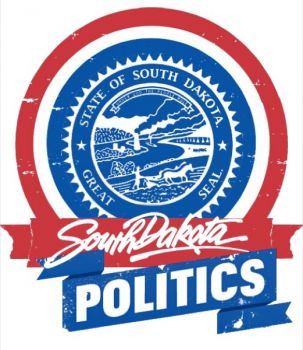The Gift of South Dakota
Subscriptions to South Dakota Magazine make great gifts!
Subscribe today — 1 year (6 issues) is just $29!
Defending the Initiative
Nov 12, 2014
South Dakota Democrats scored one clear victory in the 2014 election, getting 55% of South Dakotans to approve Initiated Measure 18 to raise our minimum wage to $8.50 per hour with annual cost-of-living increase. The Governor and the South Dakota Retailers don't like that vote, but both have said they won't try to tinker with that new law in the next Legislative session.
However, given rumblings that some legislators in the new and even bigger Republican majority might try repealing at least the indexing if not the amount of the minimum wage, a few words and a plan in defense of the initiative process are in order.
Long-time readers here understand my small-d love of the initiative process. If I had my druthers, we citizens would be passing original legislation without the meddling of legislators all the time. I share initiative founder Father Robert Haire's faith in the voters to act as an intelligent check against the plutocrats who can hold sway among our elected leaders in far-off Pierre.
Passing an initiative is no simple process. Just placing an initiative on the ballot requires about 14,000 signatures from registered voters. A legislator doesn't even need a co-sponsor to put a bill in the hopper and send it to committee for consideration. Turning an initiative into law requires thousands and thousands of yes votes. A bill can pass the Legislature on 36 votes in the House, 18 in the Senate, and one signature on the second floor of the Capitol.
Allowing the Legislature to repeal a successful initiative violates respect for the will of the voters. Legislators don't try to repeal votes for candidates; they wouldn't dare overturn the will of voters of District 8, who just elected my friend Scott Parsley to the Senate, and instead recognize Chuck Jones as District 8 Senator. We count the ballots, declare the winners, and proclaim, “The voters have spoken!” How can legislators even think of overturning the popular will on another line of that same sacrosanct ballot and undoing a successful initiative?
If legislators do get nasty and repeal the new minimum wage law, voters should respond immediately with two measures. First, they should refer that repeal to a public vote. Second, they should start a new initiative, this time a constitutional amendment (that'll take about 28,000 signatures), prohibiting the Legislature from repealing or amending laws passed by initiative. The amendment would specify that if voters pass it, only voters can change it. As a nod to the importance of checks and balances, we could allow the Legislature to refer a successful voter initiative to another public vote. But the ultimate decision must rest with the voters, immune to direct repeal from overzealous legislators who forget that their power originates with the people.
Does this discussion sound academic? I hope so. Let us hope it stays that way. Legislators, the voters have spoken. A minimum wage of $8.50 an hour, with annual indexing, is the law of the land. Leave it alone... unless you want us to come back and make that minimum wage your Legislative pay.
Editor's Note: Cory Heidelberger is our political columnist from the left. For a conservative perspective on politics, please look for columns by Dr. Ken Blanchard on this site.
Cory Allen Heidelberger writes the Madville Times political blog. He grew up on the shores of Lake Herman. He studied math and history at SDSU and information systems at DSU, and has taught math, English, speech, and French at high schools East and West River.










Comments
Are there any restrictions on legislative or initiated law? Can the people decide to give everyone in South Dakota a Christmas bonus of, say $1000.00? Can we vote ourselves a 50% reduction in property tax or halve our sales tax?
Can we pass a law that increases only the teacher wages as selectively as we did the business owners on the minimum wage?
I don't know of a single business that pays minimum wages other than maybe a starting wage to determine the potential, or lack thereof, of new hires. Workers worth their salt don't need no stinking minimum wage law. Are businesses guaranteed a minimum profit? Is there a reason that they are not offered the protectionism of a minimum profit as their employees are?
The huge downside to this particular initiative is that the voters are deciding the issue with a lack of knowledge of how businesses operate. I would welcome an initiated measure that would couple the increased minimum wage to a tax on the voter to provide it.
You may not know many employers who pay minimum wage, but the fact is 3.3 million workers get minimum wage or less: http://www.pewresearch.org/fact-tank/2014/09/08/who-makes-minimum-wage/
Voters lack knowledge—aren't a lot of voters in business? You seem to be generalizing without evidence, trying to portray the people you disagree with as uninformed without evidence of their uninformedness. It is possible that some people have business knowledge and agree that a minimum wage is a reasonable worker protection, just like safety standards or overtime requirements. You also seem to be stereotyping minimum wage workers as unworthy of decent pay. Does not every human being deserve some basic level of compensation for giving up an hour of liberty to a boss?
We can most definitely vote to cap or cut taxes. We can also vote to raise them.
Last I heard there were only around 850,000 people in South Dakota.
I'm saying that the vast majority of voters are employees, not employers, hence the passage of the initiative. Employees vote for employee benefits much like teachers vote for teacher benefits.
You mention decent pay. How do you define decent? That should be left to the employer who has first hand knowledge of the employee.....and could you possibly be stereotyping employers by suggesting that
employees are "giving up liberty to a boss". One gives up liberty by committing a crime, not earning a paycheck. Do you think all employees are equal and should be paid equally? Not in my common sense world. I notice you never touch on the subject of inequality of workers.
Private business is what made and defined our country. That is rapidly eroding away do to government interference and forced dependence. Google "how to catch a wild pig".
Walk a mile in the shoes of an employer. Your perspective just may change.
Dave says that the vast majority of voters are employees, not employers. So why should that vast majority have some say in their working conditions? Why shouldn't we as a community be able to say that every person's labor and liberty is worth some minimum, sub-subsistence wage, just as every person deserves some minimum level of safety and security?
I'll touch inequality: sure, there always will be. I am not advocating the same pay for everyone. I'm leaving the free market all sorts of room to run, paying waitresses less than minimum and counting on tips to fill the gap, letting doctors and lawyers make their hundreds of thousands, letting corporations bid for CEOs and contractors based on their perception of skill (and I haven't even asked for a blogger's minimum wage yet!). By the market, let the sky be the limit. But don't let employers take advantage of poverty and desperation and exploit people for less than some basic minimum.
We do sacrifice liberty to go to work. We get out of bed, we depart from our homes and families, we submit to a boss's orders, we give up the opportunity to read or study or tend a garden or start our own business or tuck our kids into bed... some of us for a measly $8.50 an hour. Going to work for someone else is a sacrifice of liberty. Each hour of that sacrifice deserves some minimum compensation, because at some level, every citizen has equal worth.
We don't need to know the nature of the work an employee does to discuss the minimum wage. It does not matter if the employee just walked on the job or has been in the shop for five years. It doesn't matter if it's a first job, second job, or third job, part-time or full-time. It doesn't matter if it's physical labor or paperwork or sitting on a stool in a guard booth overnight. A worker agrees to submit to the authority of an employer. No matter what specific tasks that employer orders that employee to do, even if the employer says, "Stand there and do nothing," that employer has an obligation to compensate that worker for that basic sacrifice.
Agrees to submit. Workers, or applicants, have a choice. They can elect to agree or not. They can choose to tend a garden or tuck their kids in or whatever....but not if they want to make a living. They can also choose to apply for welfare, not submit to any authority, and have all the liberty they want.
Nuff said.
Hayti SD cafe vs a Sioux Falls SD cafe they should have the same minimum wage?? Agriculture should have the same minimum pay? Should the Hayti cafe and the Sioux Falls cafe both be treated as being in the same market.
Minimum pay is hopefully closer to the prevailing market and most such jobs people are in them short term unless it meets their needs. Now if Corey has a business with 20 employees making below the minimum wage and now has to increase all the wages 10%, most of that increase comes out of Corey's pocket unless he has also not priced his products appropriately. Maybe the government then should tell Corey how to price his goods so it will work. If that is the goal to punish business owners because the State knows more about their position in the market than they do the bill must be right.
Every employee has the ability to leave a job at any time they want to. They all should be seeking the job that accomadates their needs and life style.
And the opponents here are blithely overestimating the liberty of all workers to walk away from jobs any time they want. Have you folks been poor and unemployed? Do you know what it's like not to have even a one-week cushion to keep food on the table for your kids?
We reap what we sow.
There is no income inequality in this country. The inequality rests with the choices we make and the effort we put forth.
http://www.sdbpi.org/impact-analysis-sd-increased-minimum-wage-initiated-measure-18
And please, don't dismiss income inequality. The folks at the top accruing all the corporate profits while workers' wages stagnate are neither singularly responsible for gains in productivity nor uniquely moral and deserving of the rewards of a Prosperity-Gospel Jesus.